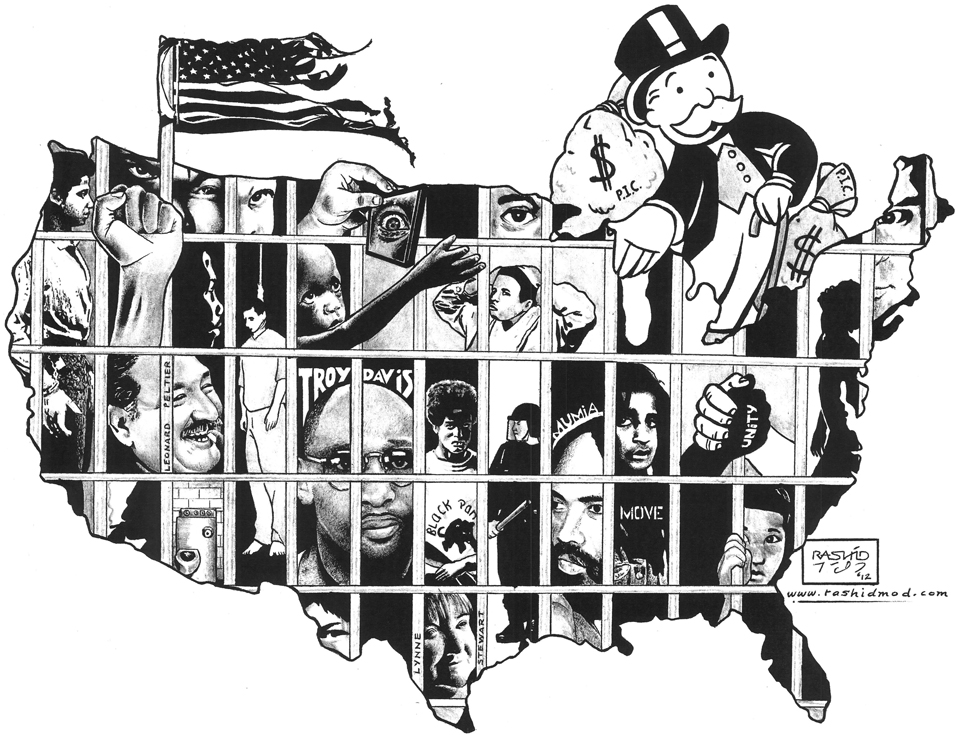
BY:
Alexis de Hahn
Avocat Reporteur
PROJECT COUNSEL MEDIA
30 July 2020 (Paris, France) – In a week where Apple, Google, Facebook, and Amazon are testifying about issues of monopoly practices and abuse of power, here’s a more specific example from a corner of our industry, affecting 1.5 million incarcerated individuals and their families, where perhaps it’s actually possible to do something.
And while there have been difficult discussions these past few weeks about racism and income inequality in both the U.S. and the UK, here’s a shameful little corner of our industry where the vulnerable are preyed upon: prison phone calling.
NOTE: most of the client work we do is in the technology, media, and telecom (TMT) sector, an industry grouping that includes the majority of companies focused on new technologies. The TMT sector is sometimes also referred to as technology, media, and communications (TMC).
Two companies in the U.S. — Securus Technologies and Global Tel Link — have a veritable duopoly providing calling services to inmates nationwide. They charge exorbitant rates: an average of $3.75 for a 15-minute call, plus all sorts of usurious add-on fees, such as $3.00 to add funds to a prison account (similar to topping up a prepaid phone card). Even worse, local counties and cities are able to charge even higher rates, sharing in the added profits through a kickback arrangement with the prison calling companies. For example, in Bristol, MA, the average rate is $5.40 for a 15-minute call, and the county gets nearly $1 million annually in kickback commissions from the vendor. The rates are also wildly inconsistent. Some states have tried to reign in the rates for state-run prisons, so we have fees that vary 10x from one state to another. Even so, in many states, county jails are still free to charge what they want, which results in average rates in jails that are close to $1 per minute.
Vendors who provide a service to jails — whether it’s clothing, food service, or phone calls — have a right to make a reasonable profit. But in an era where voice calling for most of us is practically free, charging inmates $1 per minute, plus myriad ridiculous add-on fees, is one of the prison industrial complex’s worst examples of shameful profiteering. Even worse, this practice preys upon the already vulnerable prison population, a group that’s also disproportionately black and brown. These fees are a particular burden on inmates’ families, who are usually the ones who end up having to fund prisoners’ phone accounts. The main punishment of sending someone to jail is the revocation of their liberty. It doesn’t mean we have the right to layer on additional forms of punishment such as this.
There have been some attempts to rein in this practice. But it remains a patchwork, mainly because there is no U.S. Federal oversight of the issue. Some states have imposed regulations, such as capping rates and fees, eliminating kickbacks, or mandating a minimum number of free weekly calling minutes. There are even some particular institutions that have made calling free of charge. The Prison Policy Initiative has been one of the leading advocates for reform.
A year ago, six Senators introduced a bipartisan bill to “Address Predatory Phone Rates in the Criminal Justice System”, calling on the FCC to regulate prison phone rates, using the ‘Fairness’ provision in the Communications Act. This issue has gained even greater urgency due to Coronavirus, since physical visitation has been largely curtailed, making video and phone sessions even more of a lifeline for those who are incarcerated.
But the 1996 Telecom Act, which seems to be growing more antiquated by the day, throws a byzantine wrinkle in attempts to standardize rates. The FCC can only regulate interstate rates. Only the states can regulate intrastate rates. Now, anyone under the age of 40 will have never even seen those words related to their communications world, while those of us over the age of 40 might have some vague memories of a bill from MCI or NYNEX, circa 1993. So we now have a system where the FCC capped interstate rates at 16¢ per minute, which has helped rein in the rates at state prisons. But state jails still charge, on average, 3x, to as much as 50x, the rate of state prisons, according to the Prison Policy Initiative. Attempts during the Obama administration to cap intrastate rates were successfully challenged in court.
The FCC’s signals are mixed. Chairman Pai initially backed down from challenging the courts’ ruling that the FCC has no jurisdiction on intrastate calls. But on July 20, Pai sent a letter to the state regulatory commissioners (NARUC) warning of “alarming evidence” that rates being charged for calls to and from incarcerated people are “egregiously high.”
And don’t feel sorry for Securus Technologies and Global Tel Link. They’re no better than the vendor who sells bottled water for $10 to people just rendered homeless after an earthquake or a hurricane.